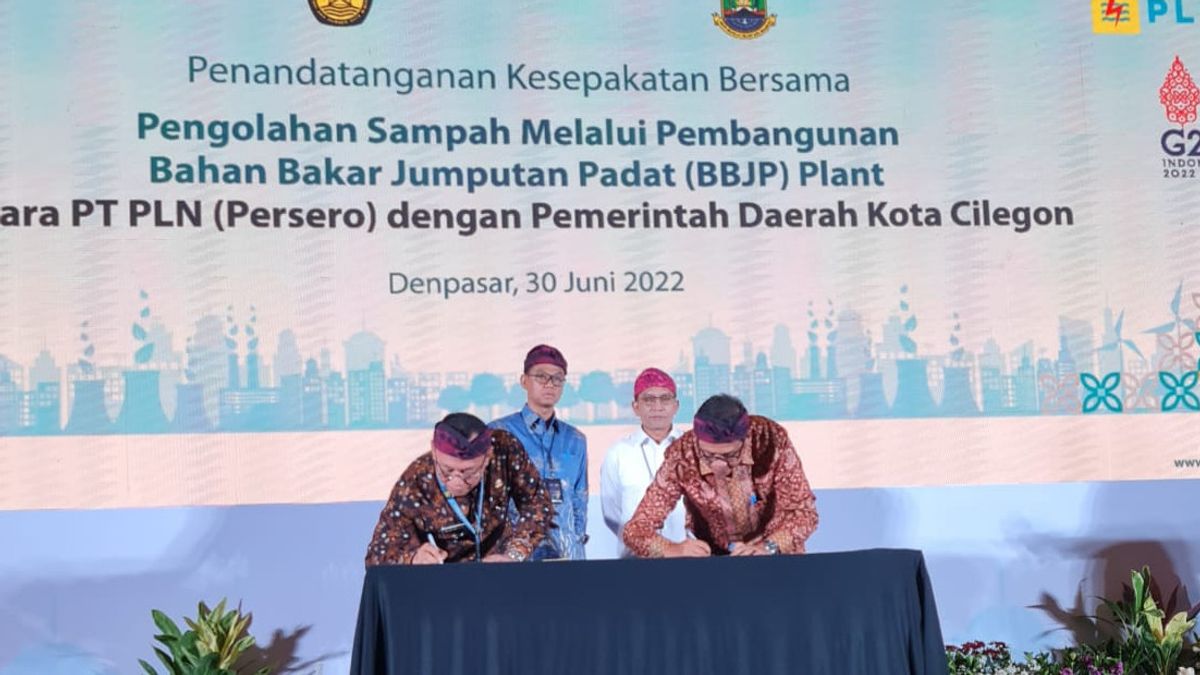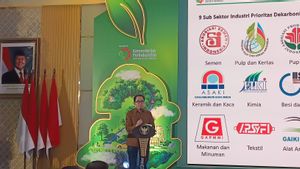JAKARTA - PT PLN (Persero) cooperates with the Cilegon City Government to build a biomass industry from municipal waste. This biomass can later be used as a fuel to replace coal in a steam power plant (PLTU).
This cooperation was marked by the Agreement signed in Denpasar, Bali on Thursday 30 June. The Minister of Energy and Mineral Resources, represented by the Director General of New, Renewable Energy and Energy Conservation of the Ministry of Energy and Mineral Resources, Dadan Kusdiana, explained that Indonesia as an agricultural country has a large potential for biomass development.
In addition, the utilization of the biomass does not only come from energy plants but also from municipal waste management. "PLN's steps in inviting all parties, especially local government stakeholders to be directly involved in biomass management, must continue to be supported," said Dadan to the media, Thursday, June 30.
PLN President Director Darmawan Prasodjo explained that PLN as a BUMN is not only obliged to provide clean and reliable electricity. But also, this waste management cooperation is a form of PLN's social responsibility in creating a cleaner environment.
"Currently, waste is still a homework to be done. However, PLN has a solution to be able to at least reduce the burden of this waste by processing it into an energy source," said Darmawan.
PLN together with the Cilegon City Government will build a site plant for processing waste into Solid Jumputan Fuel (BBJP). The processed waste reaches 30 tons per day from the Bagendeung Cilegon Final Disposal Site (TPA) which will later be processed into biomass for the co-firing needs of the Suralaya PLTU.
With a guaranteed supply of biomass from this waste management program, PLN can simultaneously achieve two goals. First, managing municipal waste. Second, creating electricity based on clean energy and domestic resources to pursue the carbon neutral target in 2060.
Cilegon Mayor Helldy Agustian appreciated the collaboration between PLN and the Cilegon City Government in the utilization of municipal waste. This municipal waste processing project into raw material for co-firing in Cilegon is a pilot project that can be implemented in other areas.
"We have now prepared 6,000 hectares of land to be able to develop the BBJP industry. We have started testing from April last year and in December we can produce solid jumputans to replace coal needs," said Helldy.
Helldy also added that with the production of Cilegon city waste, it could be processed to substitute 5 percent of the coal needs at the Suralaya PLTU.
"We process market waste, this household waste to be solid waste. This is a strategic step to simultaneously reduce carbon emissions and reduce waste in the city of Cilegon for the sake of environmental cleanliness," added Helldy.
PLN applies co-firing technology to 52 coal-fired power plants with a total capacity of 18 gigawatts (GW), where the demand for biomass fuel supply which will partially replace coal in 2025 is 10.2 million tons per year. With this collaboration, it is hoped that it will contribute to a people-based economy.
The English, Chinese, Japanese, Arabic, and French versions are automatically generated by the AI. So there may still be inaccuracies in translating, please always see Indonesian as our main language. (system supported by DigitalSiber.id)













